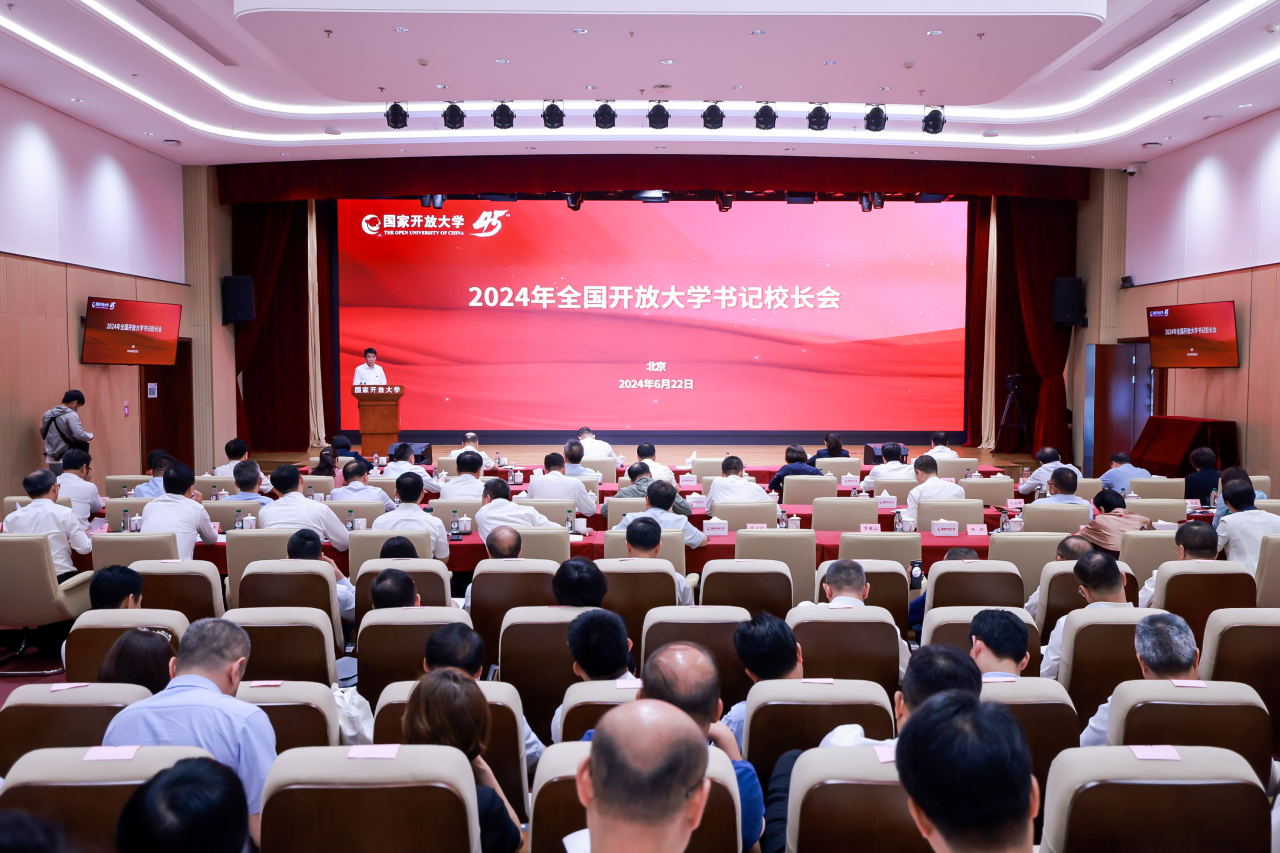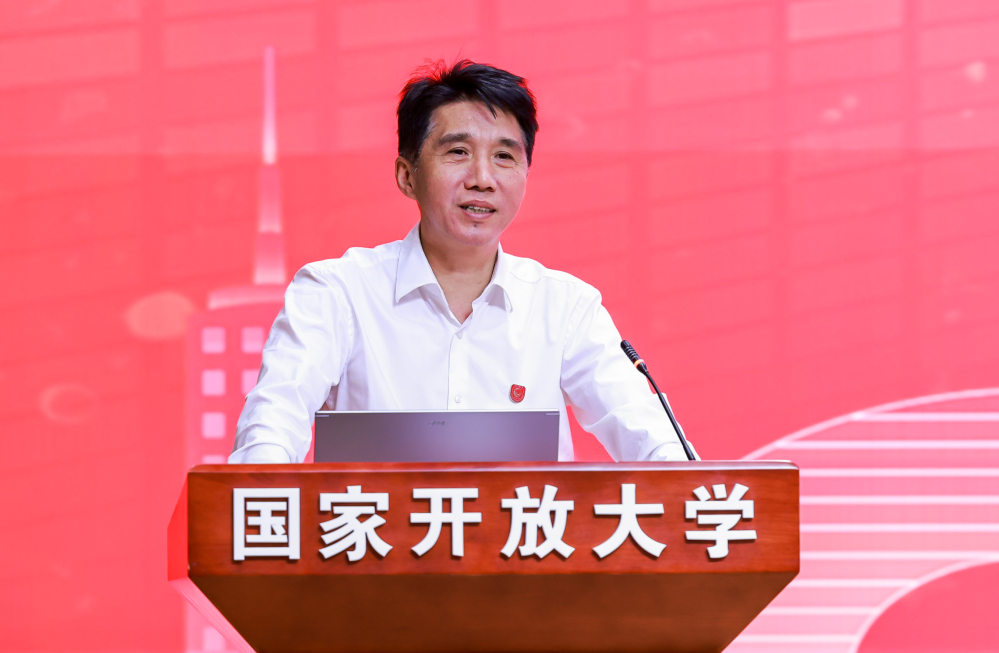 On 21-22 June 2024, the Secretary and President Conference of National Open Universities was held in Beijing.
On 21-22 June 2024, the Secretary and President Conference of National Open Universities was held in Beijing.
The theme of the conference was "Digital Empowerment of Lifelong Learning for the Construction of a Learning Nation."

Wang Qiming, secretary of the Party Committee and president of the Open University of China (OUC), delivered a keynote speech on the occasion of the university's 45th anniversary. He noted that leaders from the Ministry of Education (MOE) had provided written instructions and made significant speeches, highlighting the importance the Leading Party Group of the MOE places on open education. This recognition is inspiring and uplifting; it enhances the sense of pride in the historical contributions of open universities over the past 45 years, strengthens their mission to deliver high-quality open education, and intensifies their urgency to innovate and develop open education in new circumstances.

Wang Qiming noted that in response to new demands from economic and social development and changes in the educational landscape, and aligned with the goals of creating a learning society and becoming a global leader in education, open education faces several opportunities and challenges. First, global trends in higher education development bring fresh perspectives to open education. Second, significant shifts in China's population and higher education framework present new challenges to open education. Third, the high-quality development of the economy and society creates new demands for talent development in open education. Fourth, building a learning society sets new standards for the integrated management capabilities of open universities.
Wang Qiming emphasised that looking to the future, the OUC has proposed the "1234" strategy, focusing on advancing seven key tasks. The first task is to strengthen coordination across the system to establish a new integrated operational pattern. The second is to deepen education and teaching reforms to unleash new dynamics for the intrinsic development of open universities. The third involves accelerating digital empowerment to create new advantages in the development of open universities. The fourth is to serve the ageing population strategy by exploring innovative paths for the development of the Seniors University of China (SUC). The fifth task is to enhance practical application to build a new system where the credit bank supports lifelong education. The sixth is to deepen international cooperation and exchanges to initiate a new phase for the internationalisation of open education. The seventh is to uphold and strengthen Party leadership to foster a new ecosystem for innovative development in open education.
Officials from nine provincial-level open universities participated in discussions and delivered speeches. Leaders from the OUC and all provincial open universities gave speeches centered on the conference theme, engaging in thorough exchanges and discussions on two draft documents. These documents are the "Opinions on Implementing the Integrated Collaborative Advancement of the Comprehensive Reform in Open University Education and Teaching Through Digital Intelligence Empowerment (Draft for Comments)" and the "Development Plan for Learning Resources in the OUC (Draft for Comments)."
The conference focused on strategies for building a leading country in education and tasks for establishing world-class open universities. It emphasised becoming a leader in education by exploring integrated collaborative methods for high-quality, innovative educational development. The discussions were guided by two key themes: "A Leading Country in Education: The OUC’s Role" and "Open Education and the Construction of a Learning-Oriented Society." This event was uplifting and confidence-boosting, unifying thoughts and building consensus. It was an opportunity to assess the current landscape, address challenges directly, and mobilize collective efforts for development.
The conference was chaired by Li Song and Fan Xianrui, members of the Party Committee and vice presidents of the OUC. It was attended by all OUC leaders and approximately 60 secretaries and presidents from 44 provincial-level open universities across the nation. Additionally, middle-level OUC officials and relevant department officials from the provincial open universities participated in a non-voting capacity.
By Cui Naipeng, Qi Wei, and Zhang Yanping, OUC